
-
Apexlink
Real Estate
-
DLS
General Insurance
-
DMV
Government
-
Entiger
Fintech
-
GIS Mapping
Gas & Petroleum
-
HMS
Employee Benefit
-
HAWA
Government
-
Harley
Community
-
IHG
Hotel & Tourism
-
Sparkseeker
Humane Tech
-
Track Ninja
Sports
-
Response Vision
Disaster Management
- Artificial Intelligence
- Application Services
- Automation Services
- Cyber Security
- Chatbot Experts
- Data Analysis
- Data Warehouse Services
- Machine Learning
- Digital Commerce Services
- Digital Transformation
- Infrastructure Service
- IT Support
- IT Consulting
- IT Outsourcing
- IOS Development
- Android Development
-
Cross Platform Development
-
Gaming App Development
Real estate, as an industry, has come a long way since the integration of technology in various forms. Mobile apps and other digital tools have made conventional methods of hunting, buying, selling, and investing in real estate almost obsolete. To back this statement with facts, a 2018 research report highlighted that over 76% of internet users used their mobile phones to look for houses on sale. Imagine the revised statistics in 2024!
If you have been wanting to venture into the real estate industry with a groundbreaking mobile app, now is the best time. But if you are still doubtful if real estate mobile app development will be a worthwhile investment and unsure how to get started, you might want to read further.
4 Convincing Reasons to Invest in Real Estate App Develpment
In an increasingly digital world, having a strong digital presence is a critical component of establishing a successful business. Mobile application development comes across as an obvious first step given the huge number of people relying on their mobile devices for easy and quick access to information.
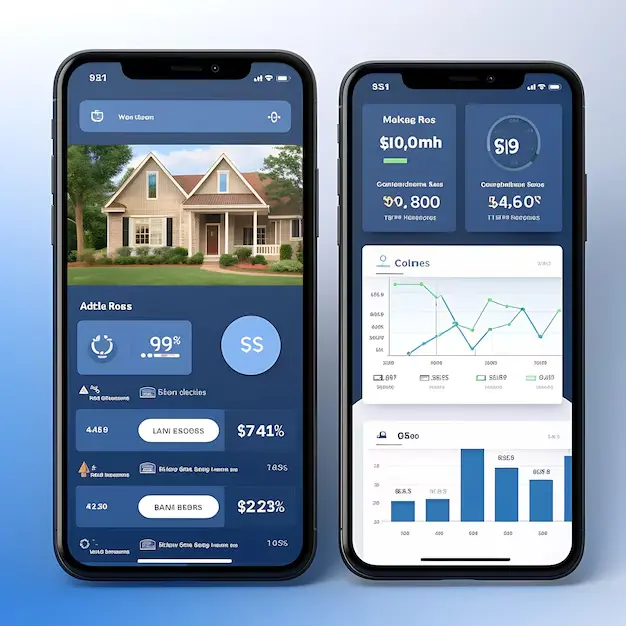
Some other ways in which mobile app development takes your real estate business to the next level include:
Accelerates Your Sales Process
By developing a real estate mobile app equipped with features like digital document signature and transfer, streamlined property searches, and virtual tours, you can expedite transactions for real estate agents significantly.
Enhances Customer Experience
Every potential client will appreciate a touch of personalization in the form of remembering their searches and favorite properties, detailed information about their preferred neighborhoods, easy and quick access to mortgage calculators, and immersive 3D tours.
Automates Key Procedures
Real estate mobile apps automate several key procedures like property information entry, document exchanges, and chatbot-assisted automated responses that save agents and homebuyers tons of time and effort.
Increases Leads and Conversions
By facilitating the property selection process for potential buyers, an effective website reduces the need for clarifications and encourages smooth progression throughout the buying journey.
One you have made up your mind about investing in real estate mobile app development, the next step is to identify the type of app you are interested in building. And for that, it is vital that you are familiar with the different types of real estate apps.
Types of Real Estate Apps
The real estate market has multiple players: landlords, agents, sellers, renters, and more. Do you know what that means? You can develop a real estate app that solves all or just a few of these problems.
Here’s a quick primer for you to understand key points of difference between various types of real estate mobile apps before you go ahead with the development process.
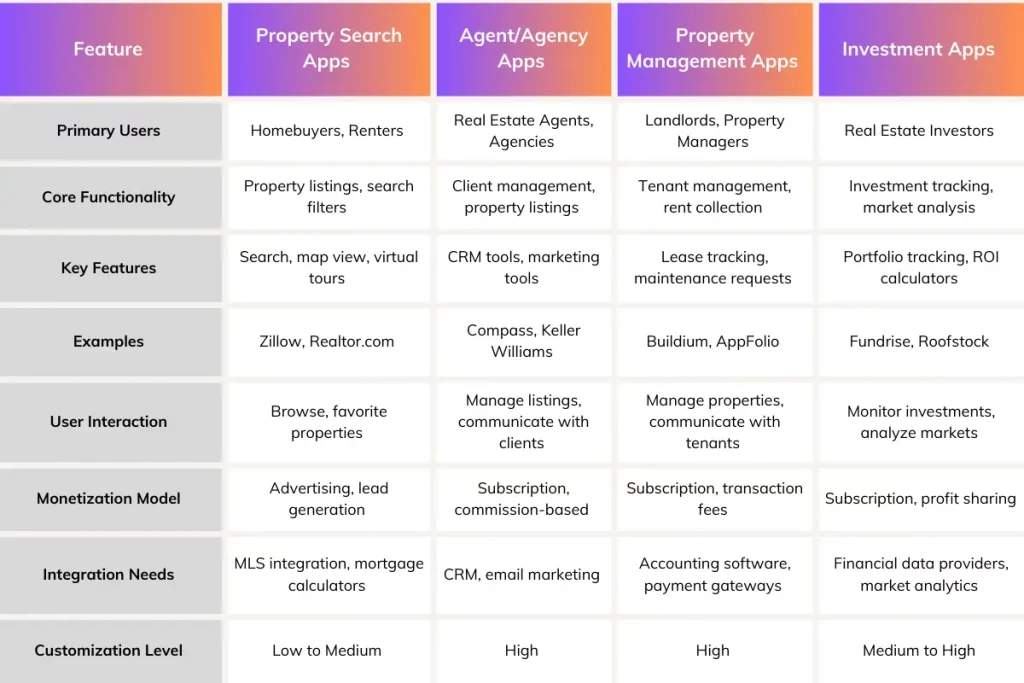
Based on this information, you can develop a real estate app that best matches with your areas of interest.
Once you have decided on the type of real estate app, it’s time to start building!
3 Key Steps to Developing Your Own Real Estate App
The development process for a real estate app varies based on the product stage: discovery, MVP development, or product scaling.
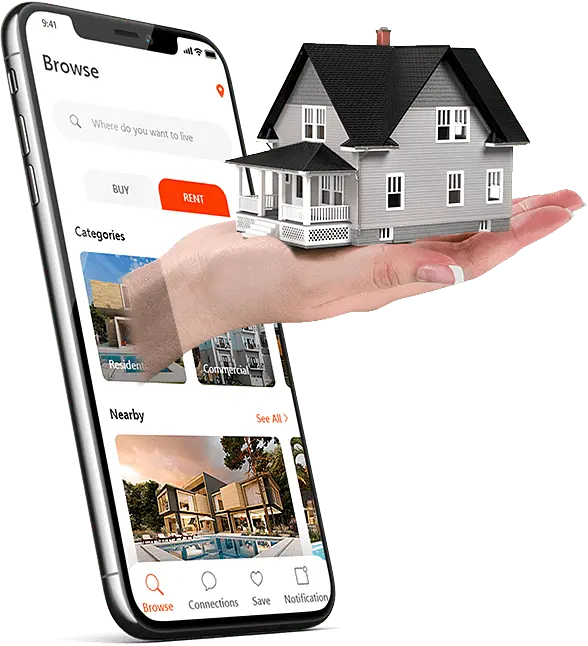
Step 1: Discovery Phase
Whether you're partnering with a real estate mobile app development company or using a website builder with a template, the first step is the discovery phase. This phase aims to identify the best ways to implement your idea effectively and efficiently.
Why Start with Discovery?
- Helps predict and mitigate risks, ensuring a more economical development process.
- Provides crucial information for starting product development and creates a detailed development plan.
- Identifies potential challenges early, allowing for proactive solutions.
Step 2: MVP Development
Post-discovery, the next step is to develop a Minimum Viable Product. An MVP includes only the essential features needed to introduce the product to the market.
Benefits of MVP Development
- Concentrates on core functionalities, reducing development time and costs.
- Allows for early market entry to gather user feedback and validate the product concept.
- Facilitates quick iterations based on real user feedback.
Step 3: Product Upgrading and Scaling
Once the MVP is successfully launched, focus on gathering user feedback to identify missing features and areas for improvement. After addressing these, consider scaling your app.
Key Considerations for Scaling
- Ensure a substantial and engaged user base.
- Meet initial business objectives and maintain stable cash flow.
- Minimize risks before expanding features and market reach.
While following these steps ensures a structured and efficient approach to real estate app development from initial concept to scalable product, building a successful real estate mobile app may require some additional effort too. For instance, you might want to pay special attention to features like search functionality, provide efficient communication to the users, and use enough graphic elements to keep the users hooked to your real estate app.
Seasia Infotech’s Extensive Experience in Real Estate Mobile App Development
With an exceptionally skilled team and several years of combined experience in real estate software development, we have worked on several projects for the real estate industry. One particular project that stands out is Real ERP, a state-of-the-art business management solution that can be tailored to property management companies of all sizes. By integrating communication, marketing, accounting, and property management tools into one intuitive system, the solution puts together features like property, tenant, owner, and vendor management, accounting, Stripe payment gateway, reporting, maintenance, and tenant background checks.
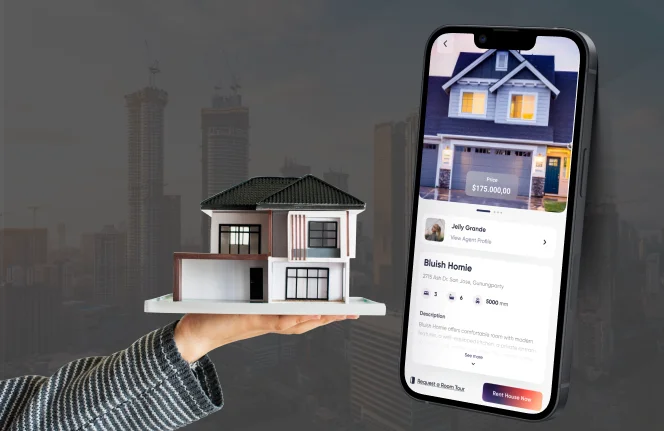
13 Core Features of a Real Estate Mobile App
Building a real estate mobile app? Don't forget to include these core features.
User Registration & Profile Management
By providing a secure and seamless user registration process, this feature allows users to create and manage their profiles. It usually also includes options for personal information updates, saved searches, and personalized preferences to enhance the user experience.
Advanced Property Search
With advanced property search, you can offer your users powerful search filters for location, price range, property type, size, and more, enabling them to find properties that precisely match their criteria. The feature ensures a streamlined and efficient property search process in real estate solutions.
Interactive Map
The feature integrates a dynamic map view displaying property locations and nearby amenities such as schools, parks, and public transport. Other than that, it helps users visualize the area around potential properties and make more informed decisions.
Property Listings
It provides detailed property listings complete with high-quality photos, videos, and 3D virtual tours. This comprehensive view helps users thoroughly explore properties and evaluate their suitability without needing an in-person visit.
Favorites & Wish List
It is another important feature that allows users to save and organize properties they are interested in. This feature makes it easy to revisit and compare favorite properties, facilitating a more organized property search experience.
Push Notifications
The feature lets the business send timely alerts for new property listings, price changes, and updates based on user preferences and search history. It helps ensure users never miss important opportunities and stay informed about the market.
In-App Messaging
In-app messaging enables secure and direct communication between buyers, sellers, and agents within the app. Additionally, the feature streamlines interactions and negotiations, ensuring all parties can easily stay in touch and share information.
Know more : In-App Messaging app
Schedule Visits
The feature simplifies the process of scheduling property visits and open house events by integrating with the user's calendar. It also ensures smooth planning, reminders, and coordination for property viewings.
Mortgage Calculator
Mortgage calculator aids in financial planning and decision-making using a built-in calculator to help users estimate their mortgage payments based on property price, down payment, interest rate, and loan term.
Geolocation Services
The feature uses GPS to show properties in the user's vicinity and provide directions to selected properties and enhances the app's convenience by helping users locate and navigate properties effortlessly.
Agent Profiles & Reviews
You can feature detailed profiles of real estate agents, including user reviews and ratings. This information helps users choose the best professionals to assist them based on past experiences and client feedback.
Document Management
Document management allows for the secure upload, storage, and sharing of necessary documents such as purchase agreements, ID proofs, and financial statements to ensure all critical documents are easily accessible and well-organized.
Virtual Tours
You can include immersive 3D tours that allow users to explore properties remotely. This feature offers a realistic feel of the property layout and ambiance, making it easier for users to assess properties from anywhere.
Some additional features you can consider including in your mobile app during real estate application development for advanced functionality include comparison features, chatbots, extended search filters, and more.
How Much Does It Cost to Build a Real Estate App?
The cost of building a real estate mobile app is determined by a number of factors including features and complexity, platform of operation, design of the app, skill and experience of the development team, and backend infrastructure. However, a ballpark figure would be somewhere between $25,000 to $50,000 for a basic app, and $50,000 to $85,000 for a more advanced app.
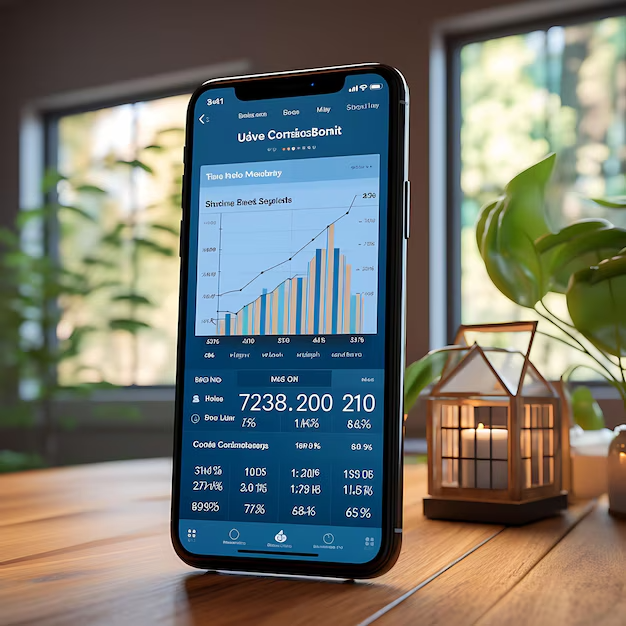
Still have your doubts concerning real estate app development cost? Wait till you learn about all the ways in which you can monetize your real estate mobile app.
How to Make Money Through a Real Estate App?
Real estate applications come in many types, each with its unique monetization strategies. Let's explore the primary monetization methods for the most popular types: buying/selling and renting apps.
Commission Fees
Users of real estate apps might be required to pay commission fees. For instance, buyers could pay a fee upon purchasing a property, while real estate agents might pay to feature their services prominently within the app.
Advertising
Advertising is a common monetization strategy across various services, including real estate apps. These apps can offer advertising space to mortgage lenders, real estate agents, interior designers, furniture stores, and more.
Premium Features and Subscriptions
Premium features and subscription plans offer users advanced options. These packages can include access to premium properties, additional listings, free consultations with real estate agents, and more. The specific features depend on the type of app.
For example, real estate agents with premium subscriptions can gain visibility to a larger audience and appear more frequently in property listings.
These monetization strategies not only provide valuable services to users but also generate significant revenue for the app developers.
Let Seasia Infotech Guide Your Way in Real Estate App Development
Our proven experience working in the dynamic real estate domain by creating world-class mobile apps and software solutions is testimony to the fact that Seasia Infotech can be your trusted partner in real estate mobile app development journey!
Utilizing our experience to suggest the best solutions and incorporating the latest technologies like big data, blockchain, and artificial intelligence to your real estate apps, we ensure that you are always one step ahead of your competition.

Frequently Asked Questions
How to build a successful real estate mobile app in 2024?
A real estate app that is effective will prioritize user experience, simple design, and excellent property listings. Include safe payment methods, virtual tours, and sophisticated search filters. Use cutting-edge technology for improved property viewing, such as augmented reality.
What are the main reasons for building a real estate mobile app?
A real estate mobile app can facilitate direct communication between clients and agents, rapid access to listings, and simple property searches. Enhanced brand recognition, lead creation, and transaction optimization are advantageous for businesses.
What challenges need to be considered while building a real estate app?
The hurdles include maintaining data accuracy, communicating with multiple listing services, following legal obligations, and staying up to date with market trends. It's also necessary to manage privacy and security concerns about user data.







 Artificial Intelligence
Artificial Intelligence
 Blockchain
Blockchain Cloud Computing
Cloud Computing Infrastructure
Services
Infrastructure
Services Metaverse
Metaverse QA
Automation
QA
Automation UI/UX
UI/UX








